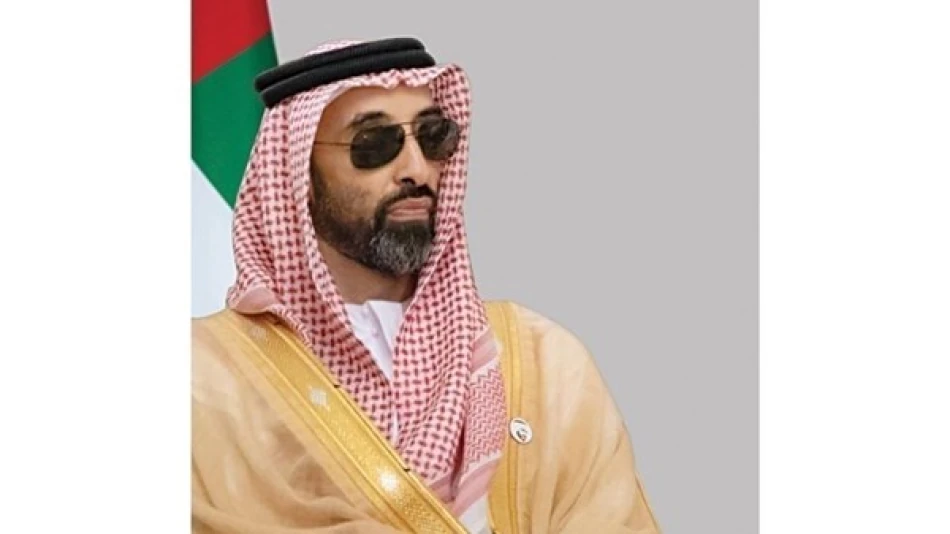
Emirati Minister Explores Infrastructure and Energy Security Investment Opportunities with Indian Trade Minister
UAE and India Double Down on AI and Energy Partnership as Global Supply Chains Shift
Sheikh Tahnoun bin Zayed Al Nahyan, Abu Dhabi's Deputy Ruler and National Security Advisor, met with Indian Commerce and Industry Minister Piyush Goyal to discuss deepening economic ties focused on artificial intelligence, infrastructure investment, and energy security. The high-level talks signal both nations' intent to capitalize on shifting global supply chains and position themselves as leaders in the AI-driven economy.
Strategic Timing Amid Global Economic Realignment
The meeting comes at a pivotal moment as countries worldwide reassess their economic partnerships following recent geopolitical tensions and supply chain disruptions. Both the UAE and India have emerged as attractive alternatives for businesses seeking to diversify away from traditional manufacturing hubs, with the UAE serving as a gateway to the Middle East and Africa while India offers massive domestic market potential and growing tech capabilities.
Sheikh Tahnoun emphasized the discussions covered "current economic and technological trends and the role of artificial intelligence in enhancing productivity and driving growth, alongside infrastructure investment opportunities and energy security." This focus on AI productivity gains reflects both countries' recognition that the next decade will be defined by nations that successfully integrate artificial intelligence into their economic frameworks.
The UAE-India Economic Corridor Takes Shape
Trade Volume Momentum
The partnership builds on already robust economic ties. Bilateral trade between the UAE and India reached approximately $85 billion in 2023, making India one of the UAE's largest trading partners. The UAE's position as India's third-largest trading partner demonstrates the relationship's maturity, but both sides clearly see room for exponential growth in emerging sectors.
Infrastructure Investment Pipeline
The infrastructure focus is particularly strategic. India requires an estimated $4.5 trillion in infrastructure investment by 2030 to sustain its growth trajectory, while the UAE has positioned itself as a global hub for project financing and logistics. This creates natural synergies, especially in renewable energy projects where both countries are making substantial commitments.
AI as Economic Accelerator
The emphasis on artificial intelligence reflects both nations' understanding that AI adoption will determine competitive advantage in the coming decade. The UAE has already launched comprehensive AI strategies, including the UAE Strategy for Artificial Intelligence 2031, while India's digital infrastructure—from the Aadhaar system to UPI payments—provides a foundation for AI integration across sectors.
For investors, this signals potential opportunities in joint AI ventures, particularly in sectors like fintech, logistics, and energy management where both countries have demonstrated strengths. The UAE's capital availability combined with India's technical talent pool creates compelling investment dynamics.
Energy Security in a Volatile World
Energy security discussions take on heightened importance as global energy markets remain volatile. While the UAE remains a major oil producer, its aggressive renewable energy investments—including the world's largest single-site solar park—align with India's massive renewable energy targets of 500 GW by 2030.
This partnership could accelerate both countries' energy transition timelines while creating new export opportunities for UAE-based renewable energy companies seeking to tap India's enormous market demand.
Market Implications
For global investors, the UAE-India partnership represents a hedge against supply chain concentration risks while offering exposure to two of the world's fastest-growing economic corridors. The focus on AI and infrastructure suggests particular opportunities in technology transfer, joint ventures, and project financing.
The timing also suggests both countries are positioning themselves to benefit from potential shifts in global manufacturing and services as companies continue diversifying their operational footprints. Unlike purely bilateral trade agreements, this partnership's emphasis on innovation and technology transfer could create sustainable competitive advantages that extend well beyond traditional trade relationships.
Most Viewed News

 Layla Al Mansoori
Layla Al Mansoori






